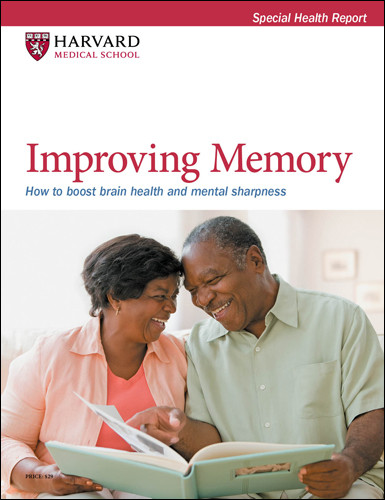Improving Memory: Understanding age-related memory loss

Get Harvard Medical School’s best ways to preserve, protect, and improve your memory!
Now you can tap into advice from Harvard Medical School experts to uncover how your brain changes as you age and discover the best ways to keep your mind and memory strong.
Improving Memory is a fascinating look at how your mind works, paired with the best ways to protect your memory. You’ll discover:
- Steps you can take now to reduce your risk of dementia
- The normal limitation of short-term memory that has nothing to do with memory loss
- Why aging isn’t always the culprit behind memory loss
- 9 key differences between normal memory lapses and signs of dementia
- 17 ways to improve memory and protect your brain
- And more!
Plus: A special section on improving everyday memory
- How to remember things most people forget
- The key to remembering new information more effectively
- The secret behind “chunking” — it helps you remember long lists
- A technique that helps you retain large volumes of information
Which memories will you forget? Take this quick quiz now:
You’re 65 years old. You get in your car to drive to your sister’s house in another town for Thanksgiving. The last time she made Thanksgiving dinner was five years ago, and it was your Uncle Ed’s last holiday with the family. He died three months later. His new caregiver, Pat, had brought him to the dinner. That was also the Thanksgiving that your niece announced she was pregnant.
On this trip to your sister’s, while thinking about your last visit, which of the following are you most likely to forget?
- To release the parking brake before setting the car in motion
- Your uncle’s name
- The name of your uncle’s caregiver
- The family’s reaction to your niece’s news
- The route to your sister’s house
- To put the pumpkin pie you promised to bring in the car
If you have normal age-related memory problems, the correct answers are C and F. To find out why, turn to page 5 when you get your copy of Improving Memory!
